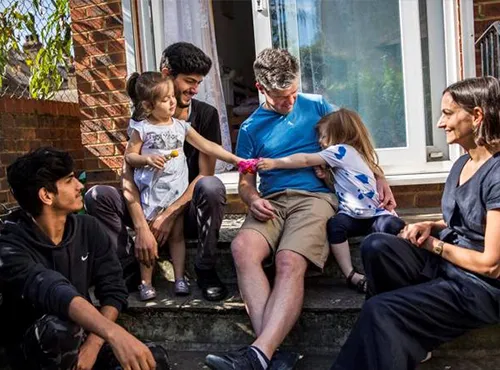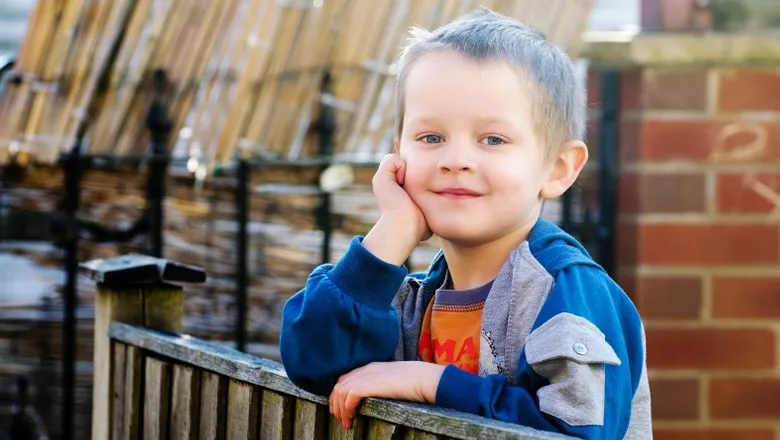Forced displacement is a growing problem around the world. In 2015 the United Nations reported that 60 million people worldwide were forced to leave their homes or home region due to persecution, conflict, violence or human rights violations. Today, the UN Refugee Agency reports that number has risen to over 100 million.
Forced displacement is a growing problem around the world. In 2015 the United Nations reported that 60 million people worldwide were forced to leave their homes or home region due to persecution, conflict, violence or human rights violations. Today, the UN Refugee Agency reports that number has risen to over 100 million.
The impact of forced displacement on children and young people is especially significant, causing disruption to their education and the opportunities this can bring. Sadly, even if individuals are able to find sanctuary in another country, they are often blocked from access to an education.
Equality of access matters because we know that education is a driver for societal change. According to the United Nations Educational, Scientific and Cultural Organisation (UNESCO), if all students in low-income countries had just basic reading skills, an estimated 171 million people could escape extreme poverty. If all adults completed secondary education, the global poverty rate could be cut by more than half.
This is why the United Nations named quality education one of its Sustainable Development Goals and the United Nations High Commission for Refugees (UNHCR) has set the goal to increase enrolment of refugees in higher education to 15% by 2030. Currently, just 6% of refugees have access to higher education.

The King’s Sanctuary Programme
King’s College London is committed to supporting displaced learners. Since 2015, the King’s Sanctuary Programme has harnessed King’s expertise in education and remote learning, research and partnerships to lead projects that create positive opportunities for forcibly displaced people. Working to ensure education remains a right for all, the Programme offers individuals affected by conflict and forced displacement unrivalled opportunities to rebuild their lives and fulfil their potential.
It is this ethos that drives our commitment to welcoming forced migrants into our institution and community. In 2020, Citizens UK named King’s as the first ‘Refugees Welcome University’, recognising the university’s contribution to understanding and responding to the global issue of forced displacement.
Over the last eight years the Sanctuary Programme has:
- Provided full tuition fee and living cost support to over 50 scholars, including 13 from Ukraine since 2022.
- Supported more than 1 million learners worldwide through PADILEIA online learning programmes designed to support refugees affected by war or disadvantaged youth, helping more than 100 of them to enrol at university.
- Supported more than 10 at-risk academics to continue their research at King’s through existing schemes and a new fellowship programme.
- Launched the Sanctuary Hub, bringing together academics, civil society, government and sanctuary seekers to co-produce research and shape global migration policy and practice.
- Developed a University Sponsorship Model through two pilot sponsorship initiatives.
Words cannot explain how grateful I am for the opportunities this scholarship has provided me. Without it, I would have been unable to go to university and fulfil my dreams. The financial support I received has taken such a weight off my back, and now I feel like the world and its many opportunities are truly available to me.
Dorothy, Sanctuary Scholarship recipient, Law, 2023.
Creating safe and legal pathways
A key aim of the King’s Sanctuary Programme is to create higher education-led pathways for people whose studies or research have been disrupted due to conflict or forced displacement.
Due to the restrictive nature of EU and UK border regimes, many people who are forcibly displaced do not have the documents required to formally cross these borders and are forced to resort to irregular routes, which tend to be more lengthy, costly and deadly.
To address this challenge, the King’s Sanctuary Team are working to create new, higher education safe and legal pathways for forcibly displaced students and academics through collaborating across sectors, developing a university sponsorship model and shaping migration policy.

Al Shaabin family with members of the Peckham Sponsors Refugees local residents group © UNHCR/Andrew McConnell
In December 2021, King’s became the first UK university to resettle a refugee student and their family as part of the UK Community Sponsorship Scheme. Developed in partnership with the Home Office, UNHCR and Citizens UK, the King’s Refugee Community Sponsorship Scheme has provided an opportunity for a refugee student who had been displaced as a result of the Syrian conflict, and their family to find a new and welcoming home in London with a fully-funded scholarship to King’s.
King’s has also supported other UK universities to take up sponsorship through sharing expertise and building partnerships. This work gained urgency and was accelerated after the invasion of Ukraine. Taking a lead, King’s worked in partnership to develop the University Sponsorship Model, which helps Ukrainian students and academics to find safety in the UK and continue their studies and research.
Collaboration
Thanks to a £3 million donation from XTX Markets’ Academic Sanctuaries Fund, the University Sponsorship Model includes a unique scholarship programme through which studentships and fellowships are distributed across four partner universities. It has also enabled the launch of the Sanctuary Hub, which brings together migration researchers with civil society, government, business and sanctuary seekers to develop research that positively shapes (inter)national migration policy and practice.
Forced displacement is a truly global issue and one that we can only respond to effectively by working together to develop impactful interventions, as has been demonstrated by the cross-sectoral responses we have witnessed being put into practice over the last year.
Professor ‘Funmi Olonisakin, Vice President (International, Engagement & Service)
The Sanctuary Team are committed to collaborating across sectors; to sharing the learnings of the Sanctuary Programme with other universities and partnering with individuals and organisations who share their ambition to create meaningful and lasting change. Their next phase of work is to develop a scalable model and shape migration policy through university sponsorship, with the aim to support people around the world, including up to 200 displaced Ukrainian students and academics.
The ambitious scale of the Sanctuary Programme’s work builds on King’s longstanding strengths in creating opportunities for forcefully displaced people, and is made possible by generous philanthropic donors. If you are interested in finding out more or supporting this work, please visit www.kcl.ac.uk/service/sanctuary or contact Sarah Cook sarah.cook@kcl.ac.uk. Find out more about how you can have a transformational impact on society by donating to King’s.



